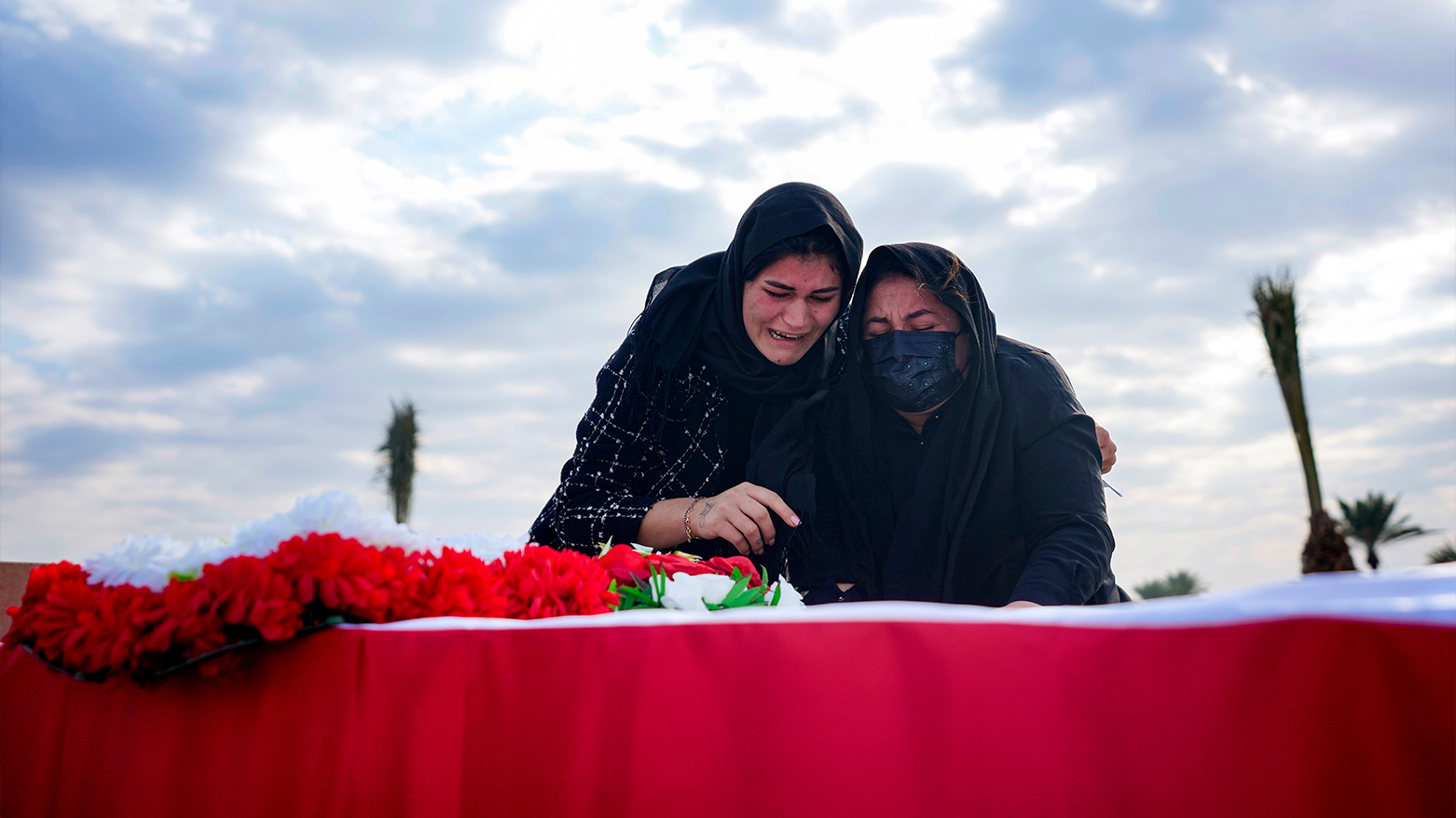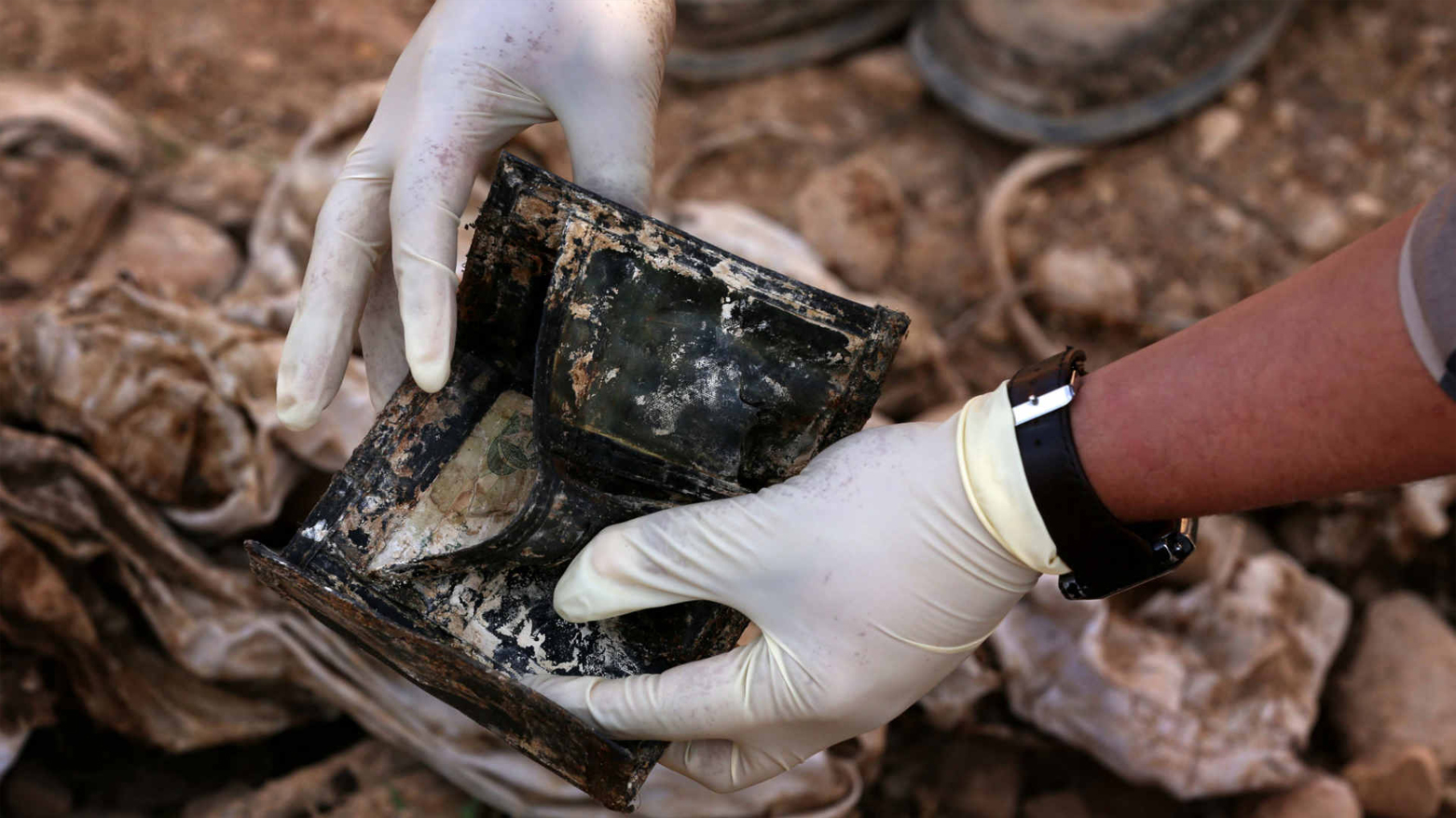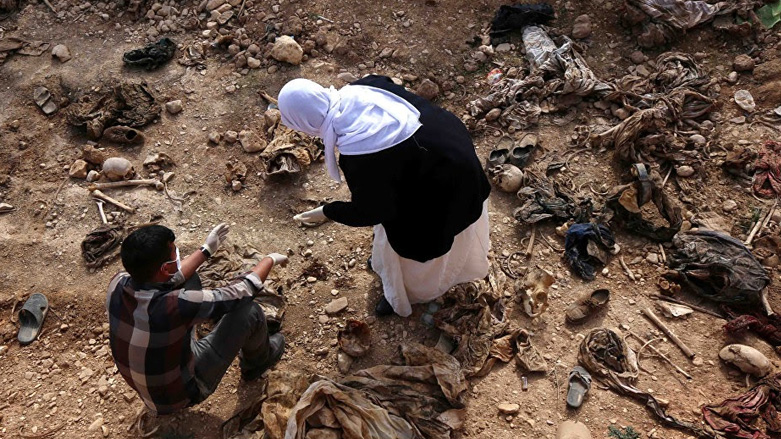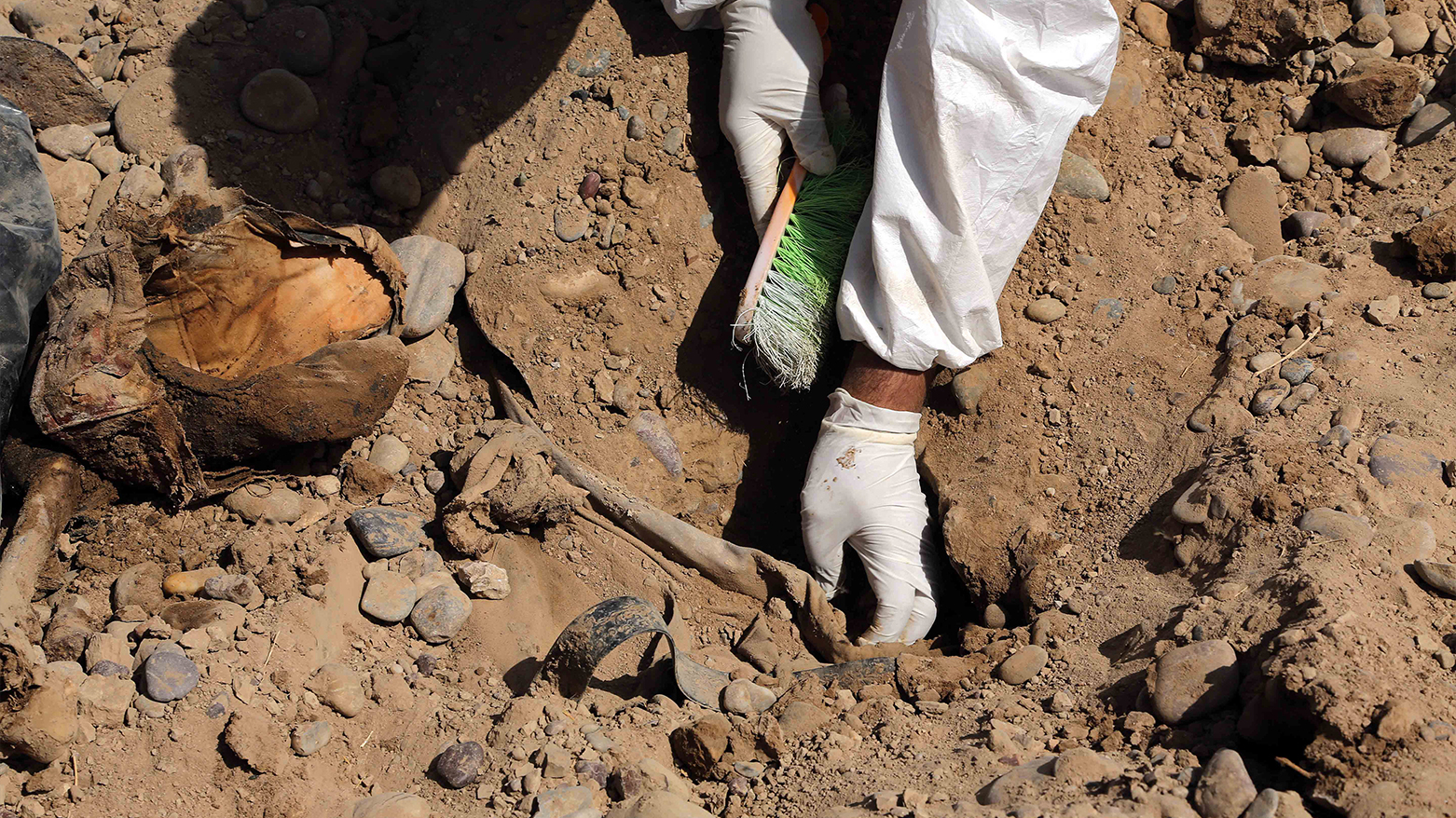As 93rd Mass Grave Emerges, Yazidis Still Await Justice and Return
A new mass grave of Yazidis, the 93rd found since ISIS's expulsion, has been discovered in Sinjar, highlighting the ongoing tragedy. The find underscores the urgency of implementing the stalled Sinjar Agreement to allow for the dignified return of the displaced population to their homeland.

ERBIL (Kurdistan24) – In a grim and heart-wrenching reminder of the unhealed wounds of the Yazidi genocide, human rights activists on Sunday announced the discovery of a new mass grave in the Sinjar district, bringing the total number of such sites found since the expulsion of ISIS to a staggering 93. The find, which comes as excavation work continues to unearth more victims of the terror group's 2014 rampage, casts a dark shadow over a region still struggling with the deep scars of its past and a frustratingly unresolved political future, a stalemate that continues to prevent the dignified return of its displaced people.
Yazidi human rights activist Tahsin Sheikh Kalo confirmed the discovery in a press statement, revealing that specialized teams had located the grave in the Jazira area, south of Sinjar. "The remains of one of the victims have been exhumed and identified," he announced. "Excavation work is ongoing, as it is expected that more victims killed by ISIS since 2014 will be found."
Sheikh Kalo provided a chilling insight into the nature of the atrocities, noting that "most of the victims in these graves were women and children who were executed en masse." He delivered a sobering assessment of the scale of the tragedy, emphasizing that the remains unearthed so far represent only a fraction of the total devastation.
"What has been discovered so far represents only a small fraction of the scale of the catastrophe, as thousands of Yazidis are still missing," he stated.
The relentless work of local and international teams to excavate the mass graves left by ISIS since Sinjar's liberation in 2015 has been a slow and painstaking process, with each new discovery further revealing the horrifying extent of the humanitarian catastrophe.

Sheikh Kalo warned that "continued excavation and detailed examination may reveal more graves, which would highlight the extent of the crimes that ISIS committed against the Yazidi community in Sinjar and its surrounding areas."
This latest tragic discovery serves as a powerful and somber backdrop to the ongoing political and security paralysis that has gripped Sinjar for years, a situation that senior Kurdish leaders have repeatedly and forcefully condemned.
Just a day earlier, Kurdistan Regional Government (KRG) Prime Minister Masrour Barzani, speaking at the inauguration of a new road project, delivered a pointed and urgent demand for the federal government in Baghdad to finally implement the 2020 Sinjar Agreement.
"We made a serious effort to implement the Sinjar Agreement with the federal government, but to this day, this agreement has not been implemented due to some outlaw forces who have imposed themselves there," the Prime Minister stated. "Our demand from the federal government is to take serious steps and facilitate the dignified return of our Yazidi sisters and brothers to Sinjar."
The Sinjar Agreement, signed in October 2020 by the KRG and the federal government with the support of the United Nations, was designed to normalize the security and administrative situation in the district by removing militias and illegal armed groups and restoring legitimate local governance.

However, its implementation has been consistently obstructed, leaving the region in a state of limbo and preventing the large-scale return of the displaced Yazidi population, many of whom still reside in camps in the Kurdistan Region.
KRG Interior Minister Rebar Ahmed, speaking at a conference on Yazidis in April, described the agreement as "one of the tools for sustainable stability," and called on Baghdad to assume its share of responsibility.
"We want to see Sinjar administered by a legitimate local administration and protected by legal forces," he stressed. Iraqi Foreign Minister Fuad Hussein has also warned that neglecting the agreement "prolongs instability in Sinjar and hinders the return of displaced persons to their homes."
The consequences of this political failure are felt most acutely by the Yazidi community. Vian Dakhil, a prominent Yazidi parliamentarian and spokesperson for the Kurdistan Democratic Party (KDP) bloc in the Iraqi parliament, has been a vocal critic of what she describes as Baghdad's neglect.
"The Iraqi government has done nothing for us," she stated in a recent press conference, emphasizing the urgent need for reconstruction and basic services before a safe return is possible. "They cannot return to live amid the rubble of collapsed buildings," she said.
Dakhil has also highlighted the federal government's failure to address the most painful legacy of the genocide: the mass graves. She has previously told Kurdistan24 that dozens of Yazidi mass graves remain unexhumed and that "the Iraqi government has not taken serious steps towards" addressing this profound issue of justice and closure for the victims' families.
The grim statistics surrounding the mass graves underscore the monumental task that remains.

According to human rights organizations, of the 93 mass graves located, only 55 have been opened, leaving 38 completely untouched. From the 750 sets of remains that have been exhumed, only 274 have been successfully identified through DNA analysis.
This slow process prolongs the agony for countless families who are still waiting for news of their missing loved ones and the chance to give them a dignified burial.
As specialized teams continue their solemn work in the fields of Jazira, unearthing more evidence of a genocide that shocked the world, their efforts are a stark reminder that the battle for Sinjar is far from over.
While the military victory against ISIS was achieved years ago, the struggle for justice, reconstruction, and a secure political future for the Yazidi people remains a pressing and tragically unresolved challenge, one that hinges on the political will to finally turn the promises of the Sinjar Agreement into a tangible reality on the ground.